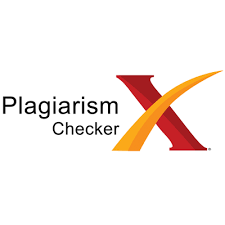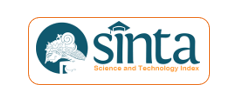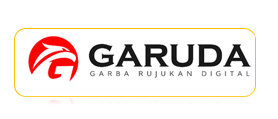MANAJEMEN PEMBELAJARAN BERDASARKAN SEJARAH KURIKULUM DI INDONESIA: SEBUAH SUDUT PANDANG TEORI BELAJAR
Abstract
Abstract: This study presents a theoretical framework for instructional management in Indonesia, taking into account the historical context of curriculum development and aligning it with the principles of sustainable development goals. Instructional management plays a crucial role in optimizing resources to achieve instructional objectives, and its significance is closely tied to the historical evolution of the curriculum in Indonesia. We examine the instructional management practices employed throughout the history of the curriculum in Indonesia, starting from the Rentjana Pelajaran in 1947 to the implementation of the Merdeka Curriculum since February 2022. By adopting a historical approach, we provide a narrative exploration of instructional management. This article uncovers insights into the theoretical shifts in learning approaches based on the established policies. Furthermore, the curriculum journey in Indonesia has been predominantly influenced by behavioristic learning theory. However, recent curriculum developments have embraced the principles of sustainable development goals. As a result, this article can serve as a valuable reference for teachers seeking guidance on effective instructional management in the classroom.
Abstrak: Studi ini menyajikan kerangka teori untuk manajemen pembelajaran di Indonesia, dengan mempertimbangkan konteks historis pengembangan kurikulum dan menyelaraskannya dengan prinsip-prinsip tujuan pembangunan berkelanjutan. Manajemen pembelajaran memainkan peran penting dalam mengoptimalkan sumber daya untuk mencapai tujuan pembelajaran, dan signifikansinya terkait erat dengan evolusi historis kurikulum di Indonesia. Kami meneliti praktik manajemen pembelajaran yang digunakan sepanjang sejarah kurikulum di Indonesia, mulai dari Rentjana Pelajaran pada tahun 1947 hingga implementasi Kurikulum Merdeka sejak Februari 2022. Dengan mengadopsi pendekatan historis, kami memberikan eksplorasi naratif tentang manajemen pembelajaran. Artikel ini mengungkap wawasan tentang pergeseran teoritis dalam pendekatan pembelajaran berdasarkan kebijakan yang ditetapkan. Lebih jauh lagi, perjalanan kurikulum di Indonesia sebagian besar dipengaruhi oleh teori pembelajaran behavioristik. Namun, perkembangan kurikulum baru-baru ini telah merangkul prinsip-prinsip tujuan pembangunan berkelanjutan. Oleh karena itu, artikel ini dapat menjadi referensi yang berharga bagi para guru yang mencari panduan mengenai manajemen pembelajaran yang efektif di kelas.
Keywords
Full Text:
PDFReferences
Abdullah, A. (2007). Kurikulum Pendidikan di Indonesia Sepanjang Sejarah (Suatu Tinjauan Kritis Filosofis). Jurnal Pendidikan Dan Kebudayaan, 066, 340–361.
Abidin, D., Retnaningrum, E., Parinussa, J. D., & Kuning, D. S. (2023). Curriculum Development in Indonesia from a Historical Perspective. Journal of Education Research, 4(2), 443–451.
Abramova, L. . (2019). The development of science and education. Publishing House “Sreda.”
Agung, L., & Noviastuti, L. (2015). Sejarah Kurikulum Sekolah Menengah di Indonesia: Sejak Kemerdekaan Hingga Reformasi. Ombak.
Alhamuddin. (2014). SEJARAH KURIKULUM DI INDONESIA. Nur El-Islam, 1(2), 48–58.
Alhamuddin. (2019). Politik Kebijakan Pengembangan Kurikulum di Indonesia: Sejak Zaman Kemerdekaan hingga Reformasi (1947-2013). Kencana.
Ananda, A. P., & Hudaidah. (2021). Perkembangan Kurikulum Pendidikan Indonesia dari Masa ke Masa. Sindang: Jurnal Pendidikan Sejarah Dan Kajian Sejarah, 3(2), 102–108.
Angga, Suryana, C., Nurwahidah, I., Hernawan, A. H., & Prihantini. (2022). Komparasi Implementasi Kurikulum 2013 dan Kurikulum Merdeka di Sekolah Dasar. Jurnal Basicedu, 6(4), 5877–5889.
Antoniou, P., & Lu, M. (2018). Evaluating the measuring properties of the principal instructional management rating scale in the Chinese educational system : Implications for measuring school leadership. Educational Management Administration & Leadership, 46(4), 624–641. https://doi.org/10.1177/1741143217700282
Araiba, S. (2020). Current Diversification of Behaviorism. ABAI: Perspectives on Behavior Science, 43, 157–175.
Arifin. (2009). Problematika SDM Guru Dalam Penerapan KTSP (Sebuah Renungan mencari jalan keluar). Wordpress. https://drarifin.wordpress.com/2009/09/16/27/
Asman, Y. . (2003). Kecerdasan Pelaksanaan KBK. http://www.raiaraia.com/news.detail. php?id=news=402
Asri, M. (2017). DINAMIKA KURIKULUM DI INDONESIA. MODELING, 4(2), 192–202.
Bandura, A. (2001). SOCIAL COGNITIVE THEORY : An Agentic Perspective To be an agent is to intentionally make things happen by one ’ s actions . Agency embodies the endowments , belief systems , self-regulatory capabilities and distributed structures and functions through which personal influence is exercised , rather than residing as a discrete self-development , adaptation , and self-renewal with changing times . Before presenting the PARADIGM SHIFTS IN PSYCHOLOGICAL THEORIZING Much of the early psychological theorizing was founded on behavioristic principles that embraced an input-output model linked by an internal conduit that makes behavior possible but exerts no influence of its own on behavior . In this view , human behavior was shaped representational and computational operations created by smart and inventive thinkers . thought could no longer be denied to humans . The input-output model was supplanted by neural networks with intentional functions lodged in a subpersonal executive network information to a neural network acting as the mental machinery that does the construing , planning , motivating , and regulating nonconsciously . Harre ( 1983 ) notes in his analysis of orchestrating the courses of action . The personal level involves phenomenal consciousness. 1–26.
Barnett, J., Mcpherson, V., & Sandieson, R. M. (2013). ascilite Connected teaching and learning : The uses and implications of connectivism in an online class. Australasian Journal of Educational Technology, 29(5), 685–698.
Boyraz, S., & Ocak, G. (2021). Connectivism : A Literature Review for the New Pathway of Pandemic Driven Education. International Journal of Innovative Science and Research Technology, 6(3), 1122–1129.
Budiono, E., & Susanto, H. (2006). KOMPETENSI SUB POKOK BAHASAN ANALISA UNTUK SOAL-SOAL DINAMIKA. Jurnal Pendidikan Fisika Indonesia, 4(2), 79–87.
Chairani, N. (2015). 2013 Curriculum Reflected in an International Oriented Senior High School, Yogyakarta. David Publishing, 12(8), 568–574. https://doi.org/10.17265/1539-8072/2015.08.004
Corbett, F., & Spinello, E. (2020). Heliyon Connectivism and leadership : harnessing a learning theory for the digital age to rede fi ne leadership in the twenty- first century. Heliyon, 6(January), e03250. https://doi.org/10.1016/j.heliyon.2020.e03250
Council of Europe. (2023). Education for sustainable development and global citizenship. Education. https://www.coe.int/en/web/education/4.7-education-for-sustainable-development-and-global-citizenship
Departemen Pendidikan dan Kebudayaan. (1996). Metode Khusus Pengembangan Kemampuan Pendidikan Dan Kebudayaan. Depdikbud.
Depdiknas. (2001). Sekilas informasi Pusat Pengembangan Penataran Guru Tertulis (PPPG Tertulis). Departemen Pendidikan Nasional Pusat Pengembangan Penataran Guru Tertulis.
Depdiknas. (2003). Kurikulum berbasis kompetensi. Departemen Pendidikan Nasional.
Direktorat Pendidikan Umum, Kejuruan, dan K.-K. (1968). Rencana Pendidikan dan Pelajaran SMA. Kementerian Pendidikan.
Downes, S., Canada, C., & Road, M. (2019). Recent work in connectivism. 22(2). https://doi.org/10.2478/eurodl-2019-0014
Ekawati, Y. N. (2017). ENGLISH TEACHERS ’ PROBLEMS IN APPLYING THE CURRICULUM 2013. ENGLISH REVIEW: Journal of English Education, 6(1), 41–48. https://doi.org/10.25134/erjee.v6i1.769.Received
Fitriyah, C. Z., & Wardani, R. P. (2022). Paradigma Kurikulum Merdeka Bagi Guru Sekolah Dasar. Scholaria: Jurnal Pendidikan Dan Kebudayaan, 12(3), 236–243.
Gould, J. (2012). Learning Theory and Classroom Practice in the Lifelong Learning Sector. Sage.
Gunawan, I. (2017a). Indonesian Curriculum 2013 : Instructional Management , Obstacles Faced by Teachers in Implementation and the Way Forward. 128(Icet), 56–63.
Gunawan, I. (2017b). INSTRUCTIONAL MANAGEMENT IN INDONESIA : A CASE STUDY. Journal of Arts, Science & Commerce, 8(3), 18843.
Hadi, A., Ngindana, R., Kurdi, M. S., & Sulaiman, M. (2023). New Paradigm of Merdeka Belajar Curriculum in Schools. Al-Ishlah: Jurnal Pendidikan, 15(2), 1497–1510. https://doi.org/10.35445/alishlah.v15i2.3126
Hakim, L. (2017). ANALISIS PERBEDAAN ANTARA KURIKULUM KTSP DAN KURIKULUM 2013. Jurnal Ilmiah Didaktika, 17(2), 280–292. https://doi.org/10.22373/jid.v16i1.590.5
Hallinger, P., Dongyu, L., & Wang, W. (2016). Gender Differences in Instructional Leadership : A Meta-Analytic Review of Studies Using the Principal Instructional Management Rating Scale. https://doi.org/10.1177/0013161X16638430
Hamalik, O. (1995). Kurikulum dan pembelajaran. Bumi Aksara.
Harahap, N. (1979). Teknik Penilaian Hasil Belajar. Bulan Bintang.
Hidayah, V. N., & Yuliawati, F. (2021). KURIKULUM TEMATIK 2013 DALAM FRAMEWORK. EduHumaniora: Jurnal Pendidikan Dasar, 13(2), 162–171.
Hidayat, R., Siswanto, A., & Bangun, B. N. (2017). Dinamika Perkembangan Kurikulum di Indonesia. Labaos.
Hirsch, S. E., Mcdaniel, S. C., Salle, T. La, & Walker, A. C. (2021). Instructional Management for Students With Emotional and Behavioral Disorders in Remote Learning Environments. Intervention in School and Clinic, 57(2), 78–86. https://doi.org/10.1177/10534512211001825
Insani, F. D. (2019). SEJARAH PERKEMBANGAN KURIKULUM DI INDONESIA SEJAK AWAL KEMERDEKAAN HINGGA SAAT INI. As-Salam, 8(1), 43–64.
Iramdan, & Manurung, L. (2019). Sejarah Kurikulum di Indonesia. Jurnal Ilmiah Wahana Pendidikan, 5(2), 88–95. https://doi.org/10.5281/zenodo.2678137
Izmi, A. (2017). POLITIK KURIKULUM DI INDONESIA : Stusi Tentang Kurikulum 1964 ke Kurikulum 1968. Universitas Negeri Jakarta.
Jannah, M., & Laili, M. I. (2018). KURIKULUM 1984/CBSA DALAM PENGEMBAHAN MATERI BAHASA ARAB. INTAJUNA: Jurnal Hasil Penelitian, 1(2), 35–40.
Karwapi. (1971). Guru Sekolah Dasar: Beberapa Masalah dan Pendekatannja. HASMAR.
Kementerian Pendidikan dan Kebudayaan. (2013). MATERI PELATIHAN GURU IMPLEMENTASI KURIKULUM 2013: SMP / MTs.
Kementerian Pendidikan Kebudayaan Riset dan Teknologi. (2021). Risalah Kebijakan: Dampak Penyederhanaan Kurikulum terhadap Capaian Pembelajaran. November.
Kohler, W. (1960). Dynamics in Psychology. Grove Press.
Kohler, W. (2018). The Mentality of Apes. Routledge.
Kosassy, S. O. (2017). ANALISIS KONSEP DAN IMPLEMENTASI KURIKULUM 2013. Jurnal PPKn & Hukum, 12(1), 78–89.
Kuntowijoyo. (2013). Pengantar Ilmu Sejarah. Tiara Wacana.
Kwartolo, Y. (1994). Catatan Kritis tentang Kurikulum Berbasis Kompetensi. Jurnal Pendidikan Penabur, 1(01), 106–116.
Lederman, N. G., Lederman, J. S., Nature, A., Lederman, N. G., Lederman, J. S., & Antink, A. (2013). International Journal of Education in Mathematics , Science and Technology ( IJEMST ) Nature of Science and Scientific Inquiry as Contexts for the Learning of Science and Achievement of Scientific Literacy Nature of Science and Scientific Inquiry as Conte. International Journal of Education in Mathematics, Science and Technology (IJEMST), 1(3), 138–147.
Lee, M., Hallinger, P., & Walker, A. (2012). Perspective on Instructional Leadership in International Baccalaureate ( IB ) Schools. Educational Administration Quarterly, 48(4), 664–698. https://doi.org/10.1177/0013161X11436271
Lestari, N. A. P. (2023). Analysis of 2013 curriculum problems so it is changed into a merdeka curriculum. Jurnal Pendidikan Dasar Nusantara, 8(2), 263–274.
Mahboobeh, S., Nader, J., Ebrahim, A., & Jamali, F. (2023). The role of STEM Education in improving the quality of education : a bibliometric study. International Journal of Technology and Design Education, 819–840.
Marks, H. M., & Printy, S. M. (2003). Principal Leadership and School Performance : An Integration of Transformational and Instructional Leadership. 370–397. https://doi.org/10.1177/0013161X03253412
Maslow, A. (2013). Toward a Psychology of Being. Simon and Schuster.
Michela, A. (2022). Cognitivism. Education Research.
Mohanty, A. (2018). Education for sustainable development : A conceptual model of sustainable education for India. International Journal of Development and Sustainability, 7(9), 2242–2255.
Muhajirah. (2020). Basic Of Learning Theory (Behaviorism, Cognitivism, Constructivism, and Humanism). International Journal of Asian Education, 1(1), 37–42.
Muhammedi. (2016). Perubahan kurikulum di Indonesia: studi kritis tentang upaya menemukan kurikulum pendidikan islam yang ideal. Raudhah, 4(1), 49–70.
Mukminin, A., Habibi, A., & Prasojo, L. D. (2019). Curriculum Reform in Indonesia : Moving from an Exclusive to Inclusive Curriculum Kurikularna prenova v Indoneziji : prehod od izključujočega k vključujočemu kurikulumu. 9, 53–72. https://doi.org/10.26529/cepsj.543
Mulyanie, S., & Susilowati. (2006). Persepsi Guru Pengetahuan Alam/Biologi Smpn di Kecamatan Sukoharjo terhadap Kurikulum 2004 (Studi Kasus di Kabupaten Sukoharjo. BIOEDUKASI, 3(1), 1–6.
Murphy, J., Neumerski, C. M., Goldring, E., Grissom, J., & Porter, A. (2016). Bottling fog? The quest for instructional management. Cambridge Journal of Education, 46(4), 455–471.
Nasution, S. (1999). Asas-Asas Kurikulum. Bumi Aksara.
Nurhalim, M. (2011). Analisis Perkembangan Kurikulum di Indonesia (Sebuah Tinjauan Desain dan Pendekatan). INSANIA, 16(3), 339–356.
Orak, S. D., & Al-khresheh, M. H. (2021). In Between 21st Century Skills and Constructivism in ELT : Designing a Model In Between 21st Century Skills and Constructivism in ELT : Designing a Model Derived From a Narrative Literature Review. World Journal of English Language, 11(2), 166–176. https://doi.org/10.5430/wjel.v11n2p166
Palupi, D. T. (2018). Indonesian Journal of Curriculum What Type of Curriculum Development Models Do We Follow ? An Indonesia ’ s 2013 Curriculum Case. Indonesian Journal of Curriculum and Educational Technology Studies, 6(4), 98–105.
Pavlov. (1932). The psychological review. 39(2), 412–428.
Pawero, A. M. V. D. (2018). Analisis Kritis Kebijakan Kurikulum Antara KBK , KTSP , dan K-13 Pendahuluan. Jurnal Ilmiah Iqra’, 12(1), 42–59.
Piaget, J. (1988). Psychologie et pédagogie. FOLIO ESSAIS.
Prastyo, G. W. (2013). Manajemen kurikulum berbasis informatika di Sekolah Menengah Kejuruan (SMK) Sandhy Putra Malang. Universitas Negeri Malang.
Priantini, D. A. M. M. O., Suarai, N. K., & Adnyana, I. K. S. (2022). Analisis Kurikulum Merdeka dan Platform Merdeka Belajar untuk Mewujudkan Pendidikan yang Berkualitas. JURNAL PENJAMINAN MUTU, 8(2), 238–244.
Purnomo, A. R. (2023). Embedding Sustainable Development Goals to Support Curriculum Merdeka Using Projects in Biotechnology. International Journal of Learning, Teaching and Educational Research, 22(1), 406–433.
Purnomo, E., & Munadi, S. (2015). Evaluasi Hasil Belajar dalam Implementasi Kurikulum Berbasis Kompetensi di Sekolah Menengah Kejuruan. Cakrawala Pendidikan, 24(2), 259–272.
Purswell, K. E. (2019). Humanistic Learning Theory in Counselor Education. 9(4), 358–368. https://doi.org/10.15241/kep.9.4.358
Raharjo. (2020). Analisis Perkembangan Kurikulum PPKn: Dari Rentjana Pelajaran 1947 sampai dengan Merdeka Belajar 2020. PKn Progresif, 15(1), 63–82.
Restu, R., Sriadhi, S., Gultom, S., & Ampera, D. (2022). Implementation Of The Merdeka Belajar-Kampus Merdeka Curriculum Based On The RI 4 . 0 Platform At Universitas Negeri Medan. Journal of Positive School Psychology, 6(6), 10161–10176.
Rizaldi, D. R., & Fatimah, Z. (2022). Merdeka Curriculum: Characteristics and Potential in Education Recovery after the COVID-19 Pandemic. International Journal of Curriculum and Instruction, 15(1), 260–271.
Robinson, V. M. J., Lloyd, C. A., & Rowe, K. J. (2008). The Impact of Leadership on Student Outcomes : An Analysis of the Differential Effects of Leadership Types. 44(5), 635–674. https://doi.org/10.1177/0013161X08321509
Sadirman, & Yuliantri, R. D. A. (2012). Dinamika Pendidikan Pada Masa Orde Baru (Kebijakan Daoed Joseof dan Nugroho Notosusanto) (Issue April).
Siemens, G. (2017). Connectivism. Dalam Foundations of Learning and Instructional Design Technology. EdTech Books.
Sinambela, P. (2013). Kurikulum 2013 , Guru , Siswa , Afektif , Psikomotorik , Kognitif. 17–29.
Sjamsuddin, H. (1993). Sejarah Pendidikan di Indonesia Zaman Kemerdekaan (p. 220). Departemen Pendidikan dan Kebudayaan.
Skinner, B. (1957). Verbal behavior. Appleton-Century-Crofts.
Soedjiarto, Thamrin, Karyadi, B., Siskandar, & Sumiyati. (2010). Sejarah pusat kurikulum.
Suparlan, N. (2020). Tanya jawab pengembangan kurikulum & materi pembelajaran. Bumi Aksara.
Surachmad. (1977). Pembinaan dan Pengembangan Kurikulum: Untuk SPG. Depdikbud: Departemen Pendidikan dan Kebudayaan.
Suryaman, M. (2020). Orientasi Pengembangan Kurikulum Merdeka Belajar. Seminar Daring Nasional: Pengembangan Kurikulum Merdeka Belajarlajar, 13–28.
Thorndike, E. L. (1911). Animal Intelligence: Experimental Studies. Transaction Publishers. https://doi.org/https://doi.org/10.4324/9781351321044
Tilaar, H. A. . (1995). 50 tahun pembangunan pendidikan nasional, 1945-1995: Suatu analisis kebijakan. Gramedia Widiasarana Indonesia.
Tolstova, O., & Levasheva, Y. (2019). Humanistic trend in education in a global context. 00121, 1–5.
Tolvanen, S., Jansson, J., & Maija, V. V. (2013). How to Use Historical Approach to Teach Nature of Science in Chemistry Education ? Teach Nature of Science in Chemistry Education Their. https://doi.org/10.1007/s11191-013-9646-x
Velázquez, F. D. C., & Rivas, F. L. (2020). Education for Sustainable Development in STEM ( Technical Drawing ): Learning Approach and Method for SDG 11 in Classrooms.
Vivekanantharasa, R., Saidek, A. R., & Setiawan, H. (2022). Curriculum for Elementary Schools in The Merdeka Curriculum. EJIP: Educational Journal of Innovation and Publication, 1(2), 82–89. https://doi.org/10.24036/XXXXXXXXXX-X-XX
Vygotsky, L. . (1978). Mind in Society: The Development of Higher Psychological Processes. In M. Cole, V. John-Steiner, S. Scribner, & E. Souberman,. University Press.
Wahyudin, D. (2020). Politik Kurikulum. PT. Remaja Rosdakarya.
Wahyudin, Din, & Suwirta, A. (2017). The Curriculum Implementation for Cross-Cultural and Global Citizenship Education in Indonesia Schools. EDUCARE: International Journal for Educational Studies, 10(August), 11–22.
Wahyuni, F. (2015). KURIKULUM DARI MASA KE MASA ( Telaah Atas Pentahapan Kurikulum Pendidikan di Indonesia ). Al-Adabiya, 10(2).
Wahyuni, S. (2003). CURRICULUM DEVELOPMENT IN INDONESIAN CONTEXT. Universum, 10(1), 73–82.
Wardana, E. (2003). Menimbang Pendidikan Berbasis Kompetensi. Artikel.
Wardhana, I. P. (2021). Review Kurikulum Pendidikan Cara Belajar Siswa Aktif ( CBSA ) Tahun 1984 Dalam Pendidikan Indonesia. Keraton: Journal of History Education and Culture, 3(1), 17–26.
Warman, Suryaningsi, & Mulawarman, W. G. (2021). Overcoming obstacles in implementing 2013 curriculum policy. Cypriot Journal of Educational Sciences, 16(3), 967–980.
Watson, B. Y. J. B. (1913). Psychology as the behaviorist views it.
Wirianto, D. (2014). Perspektif Historis Transformasi Kurikulum di Indonesia. Islamic Studies Journal, 2(1), 133–147.
Ziafar, M., & Namaziandost, E. (2019). From Behaviorism to New Behaviorism: A Review Study. Loquen: English Studies Journal.
DOI: http://dx.doi.org/10.17977/um0330v6i2p374-402
Refbacks
- There are currently no refbacks.

This work is licensed under a Creative Commons Attribution-ShareAlike 4.0 International License.
Editorial office:
History Department, Faculty of Social Science,
Universitas Negeri Malang
Jl. Semarang No.5 Kota Malang 65145,
Phone. (0341) 551312,
email: jpsi@um.ac.id
Website: http://journal2.um.ac.id/index.php/sejarah/index
E-ISSN 2622-1837

This work is licensed under a CC BY SA 4.0.








